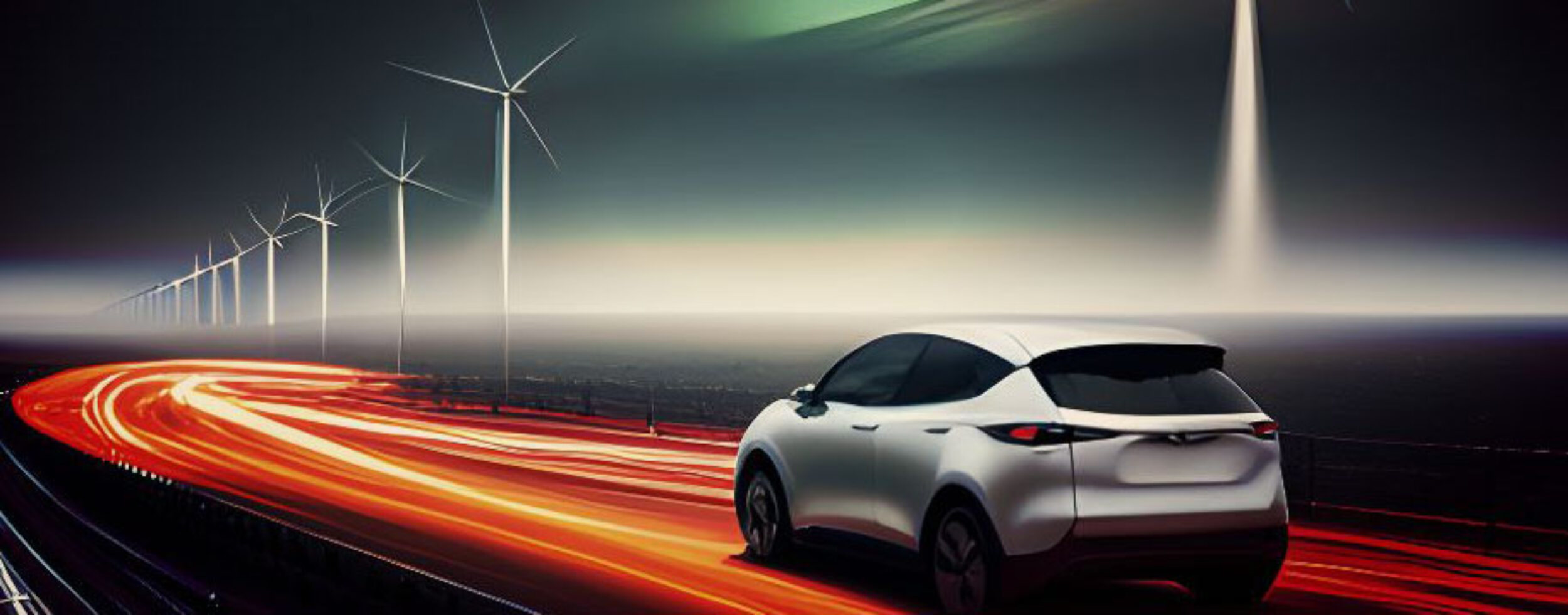Many of us hesitate to switch to electric vehicles (EVs) due to the perception that they are more expensive than traditional internal combustion engine (ICE) vehicles. However, when evaluating the cost of owning an EV, it’s essential to consider the broader picture, including the numerous benefits and incentives for Electric Vehicles in India. In this comprehensive article, we will delve into the array of policies and tax deductions available to EV buyers, making the transition to electric mobility not only eco-friendly but also financially appealing.

Moody’s Investors Service said India has the fourth-largest car market globally, but electric vehicle (EV) penetration is currently only around 1 per cent. The Govt of India has set a target achieving 30 percent electric vehicles by 20230. This will however depend on the country’s charging infrastructure, and consumers’ readiness to switch to EVs from traditional ICE vehicles, or those traditional engines powered by petrol, diesel, or natural gas. “We expect various government incentives will drive an increase in EV penetration. These include consumer incentives, production-linked incentives for advanced battery storage to drive local cell manufacturing, goods and services tax (GST) rate cuts, and other state-level subsidies,” Moody’s said.
However India has surpassed Japan to become the third-largest vehicle market in 2022 after China and the USA. According to Union Minister Mr. Nitin Gadkari, if India can use the lithium reserves recently discovered in Jammu and Kashmir, it can become the world’s number one automobile manufacturer in electric vehicle segment. Lithium is a crucial element in producing batteries that power electric vehicles.
The FAME-India (Faster Adoption and Manufacturing of (Hybrid &) Electric Vehicles in India) scheme offers consumers substantial financial benefits. Through this initiative, consumers can receive incentives for electric vehicles of up to ₹20,000 for each of the 10 lakh registered electric two-wheelers. Further, ₹1.5 lakhs incentive for each of the 35,000 electric four-wheelers with an ex-factory price of ₹15 lakhs has been offerred. Hybrid four-wheelers priced at ₹15 lakhs can receive incentives ranging from ₹13,000 to ₹20,000. Moreover, approximately 5 lakh e-rickshaws can avail ₹50,000 as incentives, while nearly 8000 e-buses with a maximum ex-factory price of ₹2 crores are eligible for ₹50 lakhs each.
These significant incentives for electric vehicles directly reduce the cost burden on consumers. The electric and hybrid vehicles shall not only be environmentally friendly but also financially advantageous. Furthermore, lower operating costs, reduced fuel expenses, and potential tax benefits amplify the financial savings for consumers. The appeal of these vehicles will be enhanced for a more sustainable and economical mode of transportation in India.
EV Incentives by the Government of India:
Under the Faster Adoption and Manufacturing of Hybrid and Electric Vehicles (FAME II) scheme launched on April 1, 2019, the Indian government has allocated a substantial budget of 10,000 crores to promote electric mobility. Let’s explore the various incentives for electric vehicles provided:
1. Purchase Incentives:
Under purchase incentives for Electric Vehicles in India, consumers receive direct price reductions on EVs, making them more affordable. For two-wheeler EVs, buyers can enjoy an incentive of INR 15,000 per kWh, capped at 40% of the vehicle’s cost. Notably, Karnataka, Tamil Nadu, Maharashtra, Rajasthan, and Delhi have emerged as the leading beneficiaries of the FAME Scheme.
2. Coupons:
Coupons offer financial incentives with subsequent reimbursements. These incentives vary for different vehicles and are often available for a limited period. For instance, the Haryana government introduced coupons with a range of Rs. 50,000 to 1 Lakh on EV purchases within a six-month policy implementation window.
3. Interest Inducements:
Interest rate discounts on loans for EV purchases are another attractive incentive. The Delhi government, for example, offers a 5% interest inducement on electric vehicle loans.
4. Road Tax Exemption:
EV buyers are exempted from paying road tax at the time of purchase. Furthermore, if you finance your EV purchase with a loan, you can benefit from tax breaks of up to INR 1.5 lakh. Delhi residents can enjoy reductions ranging from 4% to 15%.
5. No Registration Cost:
The one-time registration cost, typically associated with buying a new car, is waived for EV buyers. This will reduce the initial financial burden as incentive for Electric Vehicles in India
.
6. Scrapping Incentives:
You can receive scrapping incentives for Electric Vehicles in India when you deregister outdated gasoline and diesel vehicles. This will make it easier to transition to a new electric vehicle. Multiple outlets facilitate the exchange of old vehicles for new electric ones.
7. Additional Benefits:
Other benefits include interest-free loans, top-up subsidies, and special incentives for electric three-wheelers, offering even more financial incentives for prospective EV buyers.
Electric Vehicle Deduction under Tax Regime:
Section 80EEB of the Income Tax Act of 1961 allows individuals and business corporations to claim tax exemptions of up to INR 1.5 lakh when taking a loan to purchase a 4-wheeler or 2-wheeler electric vehicle. However, there is a condition: the EV must be for personal use only.
How to Apply for an Electric Vehicle Loan:
- Choose Your EV: Select the electric vehicle of your choice from an authorized EV dealership.
- Explore Loan Options: Compare interest rates, maximum loan amounts, and loan durations offered by different banks to find the best deal.
- Understand Application Procedures: Review the application process outlined by your chosen bank, ensuring you meet all the lender’s requirements.
- Complete the Application: Fill out the application form, attach the proforma invoice for the vehicle, and provide proof of identity and residence.
The various features of Electric vehicle loan extended by SBI are as below:
| Age of Applicant | 21 years to 67 years |
| Loan Repayment Period | 3 years to 8 years |
| Rate of Interest | 7.55% p.a. to 8.25% p.a. |
| Processing Fee | 0.20% of the loan amount, subject to a min. of Rs.500 |
| Maximum Loan Amount | Up to 90% of the on-road price of the vehicle |
| Income Criteria | Minimum of Rs.3 lakh to Rs.4 lakh annually |
The following documents are required for loan eligibility :
- Proof of Identity: Passport, Voters ID Card, PAN Card, Driving Licence, and so on.
- Proof of Address: Ration Card, Voters ID Card, Driving Licence, PAN Card, Utility Bills such as electricity bill, landline bill, and so on.
- Bank statement for last 6 months.
- Two passport sized photographs.
Eligibility under Section 80EEB:
Section 80EEB is accessible to both individual taxpayers and business corporations. The deduction can be claimed for interest payments of up to Rs 1,50,000 on the loan amount used for purchasing the EV. Ensure you retain the interest payment receipts for tax filing purposes.
Conclusion:
By exploring the myriad incentives for electric vehicles offered by the Indian government and understanding tax deductions under Section 80EEB, buying an electric vehicle becomes an even more enticing proposition. Not only do EVs contribute to a cleaner environment and lower operating costs, but they also offer substantial financial benefits. So, don’t hesitate to electrify your mobility and make the switch to a greener, more cost-effective future of electric vehicles on India’s roads.
With government support and tax incentives, you can embrace electric mobility with confidence and savings. The electrifying revolution of electric vehicles is not just a national commitment but a state-by-state endeavor in India. Across the diverse landscape of our nation, states are joining the green movement by offering a bouquet of enticing incentives to promote electric vehicles. These incentives vary from region to region, promising exciting benefits for environmentally conscious consumers and forward-thinking businesses. In our forthcoming articles, we’ll embark on a thrilling journey to explore the unique incentives offered by different State Governments, unlocking a treasure trove of opportunities that make embracing electric vehicles not just economically but also technically.

5 thoughts on “Unlocking offers : Exploring Government Tax Deductions and Incentives for Electric Vehicles in India”